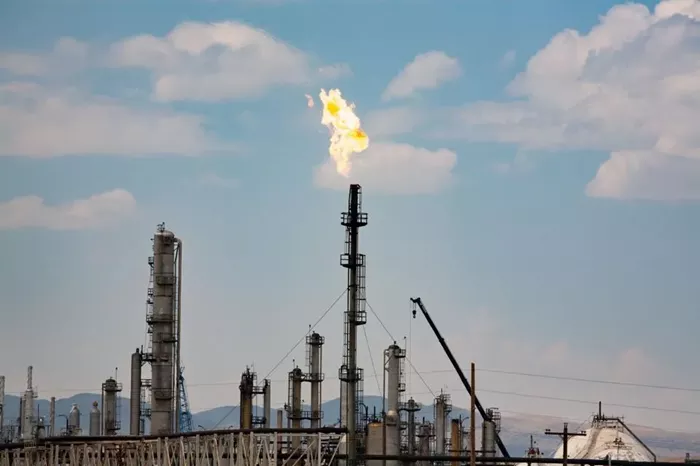The oil and gas industry is ramping up lobbying efforts to weaken the European Union’s newly adopted methane regulations, a move that climate advocates say threatens to undermine key climate goals.
A report released on June 10 by the climate research organization InfluenceMap reveals that fossil fuel companies and trade groups across the EU and the United States are engaging in a coordinated campaign to challenge the EU’s methane policy. The regulation, adopted in August 2024, sets strict emission limits for methane—a potent greenhouse gas—in the energy, agriculture, and waste sectors, and is scheduled for full implementation by 2030.
The new policy requires oil, gas, and coal companies to measure, report, and verify (MRV) their methane emissions. It also mandates leak detection and repair standards and prohibits routine venting and flaring, including from imported fossil fuels. According to EU projections, the rules could slash methane emissions linked to fossil fuel imports by at least 64 percent by 2031.
InfluenceMap analyst George Oddy told climate outlet that the past six to nine months have seen a surge in lobbying pressure from fossil fuel interests. “We’re seeing a significant amount of pressure on policymakers from the [fossil fuel] industry, led by a couple of main industry associations,” he said.
The report highlights that this lobbying spike coincides with the EU’s efforts to overhaul its energy market. As the bloc phases out Russian gas by 2027, it is seeking new import partners, particularly in the United States. This shift has made energy security a key talking point among industry groups attempting to delay or dilute environmental mandates.
One tactic involves leveraging the European Commission’s “simplification mantra,” part of its broader policy drive to promote competitiveness and reduce regulatory burdens. Industry groups are reportedly pushing to include the methane regulation in the Commission’s upcoming “omnibus package” of amended sustainability laws—potentially weakening its provisions.
In February, the European head of the International Association of Oil and Gas Producers (IOGP) warned Politico that the regulation could threaten ongoing U.S. liquefied natural gas (LNG) supply agreements. Shortly afterward, Eurogas, another industry body, issued a position paper raising concerns about the regulation’s effects on EU energy competitiveness and supply security.
By April, lobbying had escalated. In a joint letter to the European Commission, 19 energy companies and organizations—including BP, ConocoPhillips, Engie, Eni, Equinor, Naturgy, Repsol, Uniper, and Eurogas—argued the rules posed “significant challenges” to EU energy security and affordability as it transitions away from Russian gas.
Following the 2022 invasion of Ukraine, EU nations drastically increased LNG imports from the United States, which has since become Europe’s top LNG supplier. Imports of U.S. gas have more than doubled since 2021, driven by Europe’s urgency to diversify energy sources.
U.S. energy groups have been particularly aggressive in resisting EU methane standards. InfluenceMap cites May 2024 correspondence between EU Commissioner Maroš Šefčovič and U.S.-based Cheniere Energy, in which the company described the MRV requirements as “unworkable.”
In November 2024, major American trade bodies—including the U.S. Chamber of Commerce and the American Petroleum Institute—sent a letter to EU officials warning that stringent methane rules could hinder U.S. fossil fuel exports, jeopardizing Europe’s gas security. These concerns were echoed again in a March 2025 letter addressed to the U.S. Trade Representative.
InfluenceMap characterizes the lobbying strategy as “two-pronged”: advocating for weaker environmental rules while stressing the importance of stable energy supplies.
“Since the Trump administration officially started work in January, we have heard many [actors] from the U.S. oil and gas industry being quite vocal at the EU level,” Esther Bollendorff, senior gas policy coordinator at the Climate Action Network, told. She added that industry players are warning the regulations could hinder long-term LNG supply contracts.
Methane (CH₄), the main component of natural gas, is more than 25 times as effective as carbon dioxide at trapping heat in the atmosphere over a 100-year period. The Global Methane Pledge, launched at COP26, emphasizes methane’s central role in climate change, attributing roughly one-third of global warming from human activities to the gas.
Most methane emissions in the sector stem from venting and flaring excess gas instead of channeling it into pipelines.
Meanwhile, a recent Canadian study has underscored the global methane problem. McGill University researchers found that methane emissions from inactive oil and gas wells in Canada may be drastically underreported. The study, published in Environmental Science & Technology, estimated emissions at 230 kilotonnes per year—seven times higher than official figures. The team, led by civil engineering professor Mary Kang, measured emissions at 494 wells across five provinces, suggesting the national inventory has significantly underestimated the scale of the problem.
With over 425,000 inactive wells in Canada—most located in Alberta and Saskatchewan—researchers warn the findings could have major implications for climate reporting and policy enforcement.
As Europe tightens its climate regulations, the clash between environmental mandates and energy geopolitics is intensifying, with fossil fuel industry interests working to reshape the path forward.


